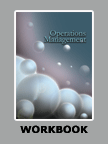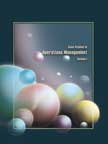Mango: Outsourcing of Non-core Activities to Keep up with Fashion
|
|
ICMR HOME | Case Studies Collection
To download Mango: Outsourcing of Non-core Activities to Keep up with Fashion case study
(Case Code: OPER106) click on the button below , and select the case from the list of available cases:

OR

Buy Now
|
» Operations Case Studies
» Operations Short Case Studies
» View Detailed Pricing Info
» How To Order This Case
» Business Case Studies
» Case Studies by Area
» Case Studies by Industry
» Case Studies by Company 
Please note:
This case study was compiled from published sources, and is intended to be used as a basis for class discussion. It is not intended to illustrate either effective or ineffective handling of a management situation. Nor is it a primary information source.
Chat with us

Please leave your feedback

|




Case Details: |
Price: |
| Case Code |
: |
OPER106 |
For delivery in electronic format: Rs. 500;
For delivery through courier (within India): Rs. 500 +Shipping & Handling Charges extraThemes
Business Strategy/
Business Environment
|
| Case Length |
: |
20 pages |
| Period |
: |
1984-2012 |
| Organization |
: |
Mango MNG Holding SL. |
| Pub Date |
: |
2013 |
| Teaching Note |
: |
Not Available |
| Countries
|
: |
Spain, Global |
| Industry |
: |
Retail |
Abstract:
|
Spain-based Mango MNG Holding SL (Mango), the flagship of a group of companies involved in design, manufacture, and distribution of garments and fashion accessories, sold garments for men and women and accessories through exclusive stores. The company was started in 1984 in Spain, and expanded rapidly to more than 107 countries across the world by 2012. Mango went on to become the second largest textile exporter in Spain. Mango was one of the pioneers of fast fashion. The company was able to design the garments and send them to the stores within a span of three months.
|

|
It could also bring designs with slight modifications within just two weeks. The case discusses Mango’s business model under which it retained some of the core activities of its value chain in-house while outsourcing the rest of the activities. Important activities like design and distribution were managed completely by the company, while manufacturing, which was a labor-intensive task, was outsourced. The company retailed through its own outlets as well as through franchisees. This business model helped the company expand rapidly and also minimize the risks. The case explains in detail the design, production, distribution, and store management processes followed by Mango.
Issues:
» Analyze Mango's business model.
» Study the design, production, distribution, and store management processes at Mango.
» Evaluate Mango's core and non-core activities.
» Understand which processes can be managed in-house and which ones can be outsourced.
Contents:
Keywords:
Mango, Spain, MNG, Mango Barcelona, fast fashion, core activities, outsource, non-core activities, design, forecasting, logistics, franchise system, distribution, globalization, Mango Touch, HE by Mango, supply chain
Focus on Core Activities to Remain Stylish
- Next Page>>
|
|









